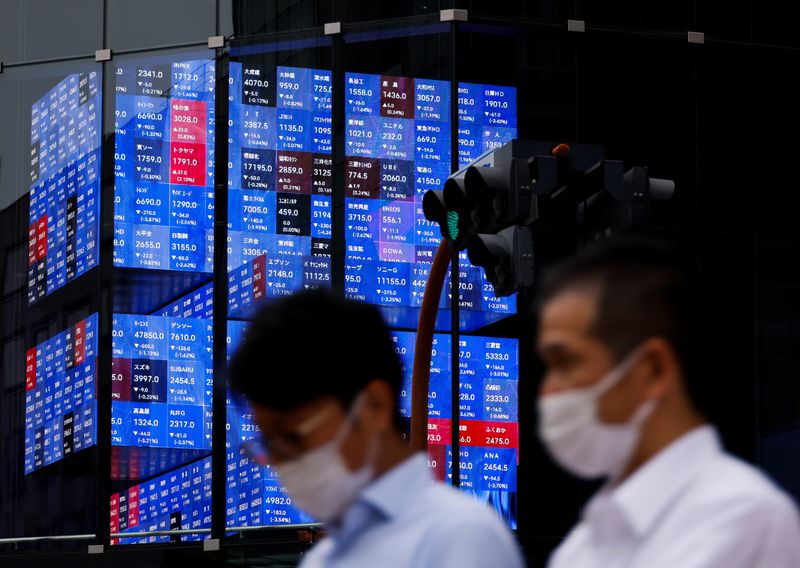By Summer Zhen
HONG KONG (Reuters) - Money continued to flow out of Asian hedge funds in the first half of 2023 as a disappointing China recovery and resilient stock markets outside the region pulled investors away.
Funds headquartered in Asia Pacific recorded a net asset outflow of $3.7 billion in the first half, the worst performance among four major regions, data from Preqin released on Thursday showed, although there were inflows in the second quarter. This followed a $30 billion outflow in 2022.
European hedge funds, by contrast, are in a sweet spot, benefiting from local markets' hitting new highs, luring $19 billion in the first six months while those in North America and the rest of the world recorded outflows in that period.
Negative news coming out of China weighed on the overall demand for Asian funds, industry participants say.
As Asia's largest stock market, Chinese equities far underperformed other major markets this year because of weakening economic data and persistent geopolitical tensions. Foreign investors have been trimming exposure to the country.
MSCI China Index has slumped 7% while MSCI Asia ex-Japan has lost 1% so far this year. Although many regional hedge funds outperformed the benchmark, it seems difficult to quickly reverse investor confidence.
"Investors' interest remains very muted for Chinese asset markets. The ongoing poor economic data and the lack of meaningful policy shifts remains of concern," Gary Dugan, chief investment officer of Dalma Capital, a Dubai-based alternative investment firm, told Reuters in July.

Asia has shifted from the region on which global investors are most focused to "the least of interest" in the past two and half years, primarily because of a lack of interest in China, Goldman Sachs (NYSE:GS) said in a hedge fund report in August.
On the positive side, there is rising demand for Japan strategies on the back of market reforms and a better economy. Allocators who told Goldman Sachs they plan to increase investment in Asia said they will focus on Japan.